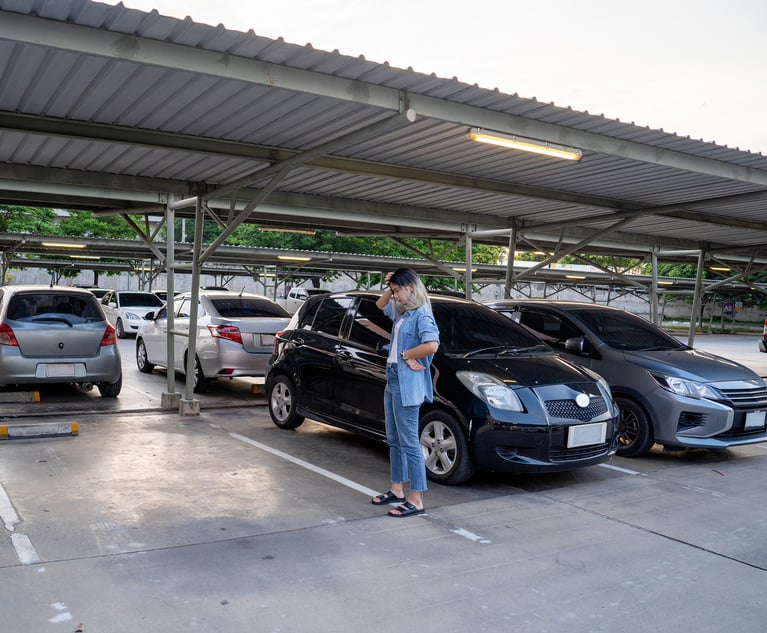The National Association of Insurance Commissioners has releasedstatistics showing consumer insurance complaints decreased for athird year but the causes for the complaints are relativelyunchanged.
|According to the NAIC data made public at the group's quarterlyspring meeting in New York, the top three reasons consumers filedformal complaints against their insurance companies in 2006 weredelays, denials of claims, and unsatisfactory settlementoffers.
|Rounding out the top five sources of consumer complaints werepolicy cancellations and premiums/insurance rating issues.
|The NAIC maintains a centralized electronic Complaint DatabaseSystem through which states voluntarily report “closed”complaints–those that have been investigated and resolved to thesatisfaction of the state or jurisdiction in which they are filed.First established in 1990, the CDS now houses more than two millioncomplaints.
|A total of 190,572 consumer complaints were reported to CDS in2006, a 7.8 percent decrease from the previous year. Thisinformation is based on the submission of data to the NAIC from thestate insurance departments.
|Developer Larry A. Silverstein said his organization has reacheda settlement with one of the World Trade Center insurers, TIG.Under the agreement, TIG will pay Silverstein and the PortAuthority $12,535,000 toward the rebuilding of the World TradeCenter, in addition to a prior payment of $9.1 million. TheDallas-based insurance group is a subsidiary of Fairfax FinancialHoldings.
|In 2004, a federal jury found TIG and nine other insurers wereliable for two insurance policy limits because the two planeattacks on the World Trade Center were separate occurrences underthe policies. The settlement requires TIG to pay a fullsecond-occurrence payment of $9.1 million, plus an additional$3.435 million of prejudgment interest, which represents 90 percentof Silverstein's prejudgment interest demand.
|The typical U.S. worker spends more time getting ready forThanksgiving than reviewing employer-sponsored health, life, anddisability insurance, according to researchers at Guardian LifeInsurance Company of America. The New York-based insurer publishedthat finding in a summary of a recent survey of 532 U.S. consumersages 18 and older who are employed at least part time.
|About half of U.S. workers spend little or no time reviewingtheir benefits each year, and the result is many workers do notunderstand how group benefits are underwritten or how much theycost, the researchers report. The average survey respondent spentonly 1.4 hours reviewing benefits this past year. That compareswith an average of 2.8 hours spent on filing taxes and 2.7 hoursspent on getting ready for Thanksgiving, the researchersindicate.
|About 27 percent of the participants who said they had some formof disability insurance did not know what percentage of theirincome was protected. Among sources that employees consulted beforemaking decisions about their benefits each year, 50 percent citedliterature provided by employers, and 42 percent, their employer'shuman resources department.
|American Family Mutual Insurance Company will contest a Missourijury's $17 million class-action award over company insistencecustomers use aftermarket parts for collision repairs, a spokesmansaid. “We will not accept this verdict,” said Steve Witmer,speaking for the Madison, Wis.-based insurer. At this point, hesaid, the form and timing of an appeal is not clear. The verdictwas delivered in Jackson County State Court in Kansas City after anearly month-long trial.
|In 1999, State Farm lost a $1.05 billion aftermarket partsclass-action case brought on behalf of 4.7 million policyholders in48 states. The company successfully appealed it to the IllinoisSupreme Court, which vacated the verdict in 2005. The Illinois highcourt found policyholder claims in the suit differed too much anddid not qualify for class-action treatment.
|Michael E. Waldeck, one of the plaintiff's attorneys in theMissouri case, said the way in which the case was presented theredid not involve the same errors claimed in the Illinois case, and“we're optimistic it [the verdict] will prevail on appeal.”
|Witmer said the company will pay for parts produced by a car'smanufacturer in 2005 or later. For vehicles from 2004 or older, itrequires the use of cheaper aftermarket parts.
|Aon has agreed to pay rival brokerage Benfield $18.4 million tosettle accusations Aon did economic damage by illegally poachingemployees and business from Benfield's facultative reinsurancedepartment. According to statements released by Chicago-based Aonand London-based Benfield, the firms reached an “amicablesettlement” with one another and the former members of Benfield'sfacultative solutions team.
|The case goes back to Aon's announced hiring of ElliotRichardson to head up its global cedent facultative reinsurancedivision on Sept. 25. He was global head of Benfield's facultativeunit at the time of his resignation. In mid-October Benfield issueda statement to the London Stock Exchange that due to the departureof senior managers in its facultative solutions group there wouldbe an impact on the firm's business and it was suing Aon. Thecompany said it expected profit to be affected by $19.3 million.Benfield filed suit in both London and U.S. District Court in NewYork City.
|John Hancock Life Insurance Company led the industry in totalindividual life insurance sales in 2006, the company announced.Citing a recent survey of 78 large life insurers by LIMRAInternational, John Hancock said its sales reached $735 million intotal annualized premium in 2006, moving it into the top spot forthe year after finishing at number three in 2005 and number five in2004. Sales for 2006 increased almost 20 percent over 2005,compared with an average industry sales increase of 6.6 percent,Hancock points out. Hancock is a subsidiary of Manulife FinancialCorp., Toronto.
|Skepticism about insurers' risk management capabilitiesprevented their sector from fully recovering lost capital after therecord 2005 storm season, according to Kevin Kelley, chiefexecutive officer of Lexington Insurance Company in Lexington,Mass. Kelley spoke at a seminar sponsored by American InternationalGroup on homeland security issues.
|Property/casualty insurers recouped about 27 percent of lostcapital from common equity offerings following the 2005 storms, hesaid. That figure compares with 50 percent from the devastating9/11 attacks in 2001 and 44 percent from Hurricane Andrew in 1992.“Wall Street did not have great confidence in the kind of exposuresome of these companies had to hurricane loss,” said Kelley. “Theability to reload was much greater in the previous two events.”
|Kelley also called for an extension of the Terrorism RiskInsurance Act this year. He believes terrorism is a risk that is souncommon it remains difficult to insure and estimated losses from anuclear, biological, chemical, or radiological attack on New Yorkcould total $778 billion. “That is way more than the industry hasin capital today,” said Kelley.
|The National Association of Insurance Commissioners imploredCongress to consider insurers' antitrust exemption as “separate anddistinct” from the optional federal charter issue. But the AmericanCouncil of Life Insurers later said it opposed the NAIC position,arguing the two issues should be addressed in tandem.
|The NAIC's position was voiced by Susan Voss, Iowa's insurancecommissioner, in testimony before the Senate Judiciary Committee.She appeared on a panel of consumer advocates and another on theimplications of repealing the insurance industry's exemption fromantitrust provisions of the McCarran-Ferguson Act. In hertestimony, Voss said the NAIC opposes coupling a proposed repeal ofMcCarran-Ferguson with creation of an optional federal charter.“While some of the industry's largest players advocate forderegulation through a so-called federal charter and wouldencourage coupling the two issues, the NAIC supportsreconsideration of the limited federal antitrust exemption as aseparate and distinct policy matter,” she said.
|But in a statement issued after the hearing, Jack Dolan, an ACLIspokesman, said, “repealing McCarran-Ferguson in isolation, withoutregard to comprehensive regulatory reform in the form of anoptional federal charter, would make an already inefficientregulatory system far worse.” The ACLI “supports optional federalchartering because the current state regulatory system iscumbersome, inconsistent, unnecessarily complicated, and unable toadapt quickly to changes in the marketplace,” Dolan added.
|Louisiana's top insurance regulator has ordered Allstate toreinstate homeowners policies for more than 4,000 customers withhurricane-damaged homes because the company failed to inspect theproperties sufficiently. Insurance Commissioner Jim Donelon hastold the company to scrap its cancellation notices to 4,700policyholders and reinstate coverage.
|The department said it received 486 complaints frompolicyholders saying they had not abandoned their homes and werecanceled improperly by the company. The action comes after thecommissioner lifted a ban on insurers canceling policies in thewake of the 2005 hurricane season that devastated New Orleans.
|Donelon requested information from the insurer and sentinspectors out to 18 homes of canceled customers to determinewhether Allstate made a reasonable effort to inspect the homes,whether they were inhabited or being repaired, and whether policiesshould be continued. In all 18 cases the policyholders were livingin FEMA trailers next to the homes, according to Donelon. Thecommissioner said the Allstate inspectors should have realized theindividuals intended to reoccupy the homes.
|Florida's insurance regulator said, depending on thepolicyholder's location, property insurers will be required to cuttheir premium rates by 10.2 percent to 52.8 percent. The cutbacksannounced by Florida Insurance Commissioner Kevin McCarty are theresult of recently enacted property insurance discounts insurersare required to pass along to policyholders.
|In reaction, one insurance trade group praised thecommissioner's expedited release of rates but said it is only astopgap measure to remedy Florida's insurance problems.
|Under the legislation passed during the recent Special Sessionof the Florida Legislature, the Office of Insurance Regulation isrequired to calculate the presumed factors that establish how muchsavings the insurance reforms should yield for policyholders invarious regions around the state. Insurers were expected to realizesavings through a provision allowing the Florida HurricaneCatastrophe Fund to provide low-cost reinsurance for primarycarriers.
Want to continue reading?
Become a Free PropertyCasualty360 Digital Reader
Your access to unlimited PropertyCasualty360 content isn’t changing.
Once you are an ALM digital member, you’ll receive:
- All PropertyCasualty360.com news coverage, best practices, and in-depth analysis.
- Educational webcasts, resources from industry leaders, and informative newsletters.
- Other award-winning websites including BenefitsPRO.com and ThinkAdvisor.com.
Already have an account? Sign In
© 2024 ALM Global, LLC, All Rights Reserved. Request academic re-use from www.copyright.com. All other uses, submit a request to [email protected]. For more information visit Asset & Logo Licensing.








